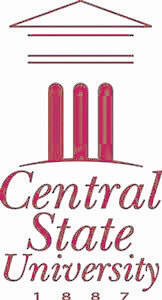
WILBERFORCE — Central State University and partners in the Region V University Transportation Center (UTC) recently received $15 million from the U. S. Department of Transportation (DOT) Center for Connected and Automated Transportation (CCAT).
Along with CSU, partners include the University of Michigan, Purdue University, the University of Illinois at Urbana-Champaign, University of Akron, Washtenaw Community College, Northwestern University, the University of Minnesota, and the University of Wisconsin-Madison. This collaboration represents one of the nation’s 10 regional DOT Centers of Excellence.
The CCAT aims to advance research on the safety, mobility, and sustainability of connected vehicles, connected infrastructure, and autonomous vehicles (CAVs), also called “self-driving” cars.
CSU will investigate the vulnerability of CAVs to cyber threats by engaging faculty and students from mathematics and computer science within Central State University’s John W. Garland College of Engineering, Science, Technology, and Agriculture. CSU will uniquely address the inclusion of low-income and minorities in CAV research and access to technology by engaging faculty and students from the Department of Social and Behavioral Sciences. CSU Environmental Engineering faculty will investigate how to create sustainable CAV systems using renewable energy sources, minimizing carbon and environmental footprints.
“CSU is an equal partner,” said Central State University Professor Krishna Kumar Nedunuri. “CSU’s research focuses on mitigating ground-level pollution from on-road vehicle emissions in congested interstate highways. CSU Environmental Engineering Program is developing a web-based air quality mobile app deployed onboard CAVs that not only collect pollution data but also alerts passengers approaching these highways of any adverse air quality and allows them to search alternate routes.”
According to www.transportation.gov, the UTC Program awards and administers grants to consortia of colleges and universities across the United States. The UTC Program advances the state-of-the-art in transportation research and technology and develops the next generation of transportation professionals. Internationally recognized for their capacity to lead, innovate, and educate, UTCs continue to enhance and transform the transportation system, keeping it in step with the nation’s economic, environmental, and societal goals.
“They advance U.S. technology and expertise in transportation through education, solutions-oriented research and technology transfer, and the exploration and sharing of cutting-edge ideas and approaches,” the website said.

